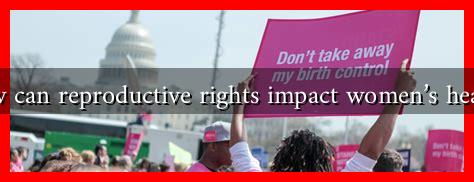-
Table of Contents
How Can Reproductive Rights Impact Women’s Health?
Reproductive rights are fundamental human rights that encompass a woman’s ability to make informed decisions about her reproductive health. These rights include access to contraception, safe abortion services, and comprehensive sex education. The implications of reproductive rights extend far beyond individual choice; they significantly impact women’s health, social status, and economic well-being. This article explores the multifaceted relationship between reproductive rights and women’s health, highlighting the importance of access to reproductive healthcare services.
The Link Between Reproductive Rights and Health Outcomes
Access to reproductive rights is directly correlated with improved health outcomes for women. When women have the autonomy to make decisions about their reproductive health, they are more likely to experience better physical and mental health. Here are some key areas where reproductive rights influence women’s health:
- Maternal Health: Access to prenatal care and safe childbirth practices reduces maternal mortality rates. According to the World Health Organization (WHO), approximately 295,000 women died during and following pregnancy and childbirth in 2017, with many of these deaths being preventable through proper healthcare access.
- Contraceptive Access: Availability of contraceptives allows women to plan their pregnancies, leading to healthier outcomes for both mothers and children. A study published in the journal Health Affairs found that increased access to contraceptives could reduce unintended pregnancies by 70%.
- Abortion Services: Safe and legal abortion services are crucial for protecting women’s health. The Guttmacher Institute reports that unsafe abortions account for 13% of maternal deaths globally, emphasizing the need for accessible abortion care.
Case Studies: The Impact of Reproductive Rights on Women’s Health
Several case studies illustrate the profound effects of reproductive rights on women’s health outcomes:
- Rwanda: Following the 1994 genocide, Rwanda implemented progressive reproductive health policies, including access to contraception and safe abortion services. As a result, maternal mortality rates dropped from 1,071 per 100,000 live births in 2000 to 290 per 100,000 in 2015, showcasing the positive impact of reproductive rights on health.
- United States: The introduction of the Affordable Care Act (ACA) in 2010 expanded access to contraceptive services for millions of women. A study by the National Bureau of Economic Research found that the ACA led to a significant decrease in unintended pregnancies, which in turn improved maternal and child health outcomes.
Barriers to Reproductive Rights and Their Health Consequences
Despite the clear benefits of reproductive rights, many women face significant barriers that hinder their access to necessary healthcare services. These barriers can lead to adverse health outcomes:
- Legislative Restrictions: In many countries, restrictive laws on abortion and contraception limit women’s choices. For instance, in the U.S., several states have enacted laws that impose waiting periods and mandatory counseling, which can delay access to care.
- Socioeconomic Factors: Women from low-income backgrounds often struggle to access reproductive healthcare due to financial constraints. A report from the Kaiser Family Foundation indicates that women in poverty are more likely to experience unintended pregnancies and related health complications.
- Cultural Stigmas: In some cultures, discussing reproductive health is taboo, leading to a lack of education and awareness. This stigma can prevent women from seeking necessary healthcare services, resulting in poorer health outcomes.
Conclusion: The Imperative of Protecting Reproductive Rights
Reproductive rights are not merely a matter of personal choice; they are essential for ensuring women’s health and well-being. Access to comprehensive reproductive healthcare services leads to improved maternal health, reduced rates of unintended pregnancies, and better overall health outcomes for women. As evidenced by various case studies, countries that prioritize reproductive rights see significant improvements in women’s health metrics.
To protect and promote women’s health, it is crucial to advocate for policies that ensure access to reproductive rights. This includes supporting legislation that expands access to contraception, safe abortion services, and comprehensive sex education. By doing so, we can empower women to make informed choices about their reproductive health, ultimately leading to healthier communities and societies.
For more information on reproductive rights and their impact on women’s health, visit the Guttmacher Institute.


